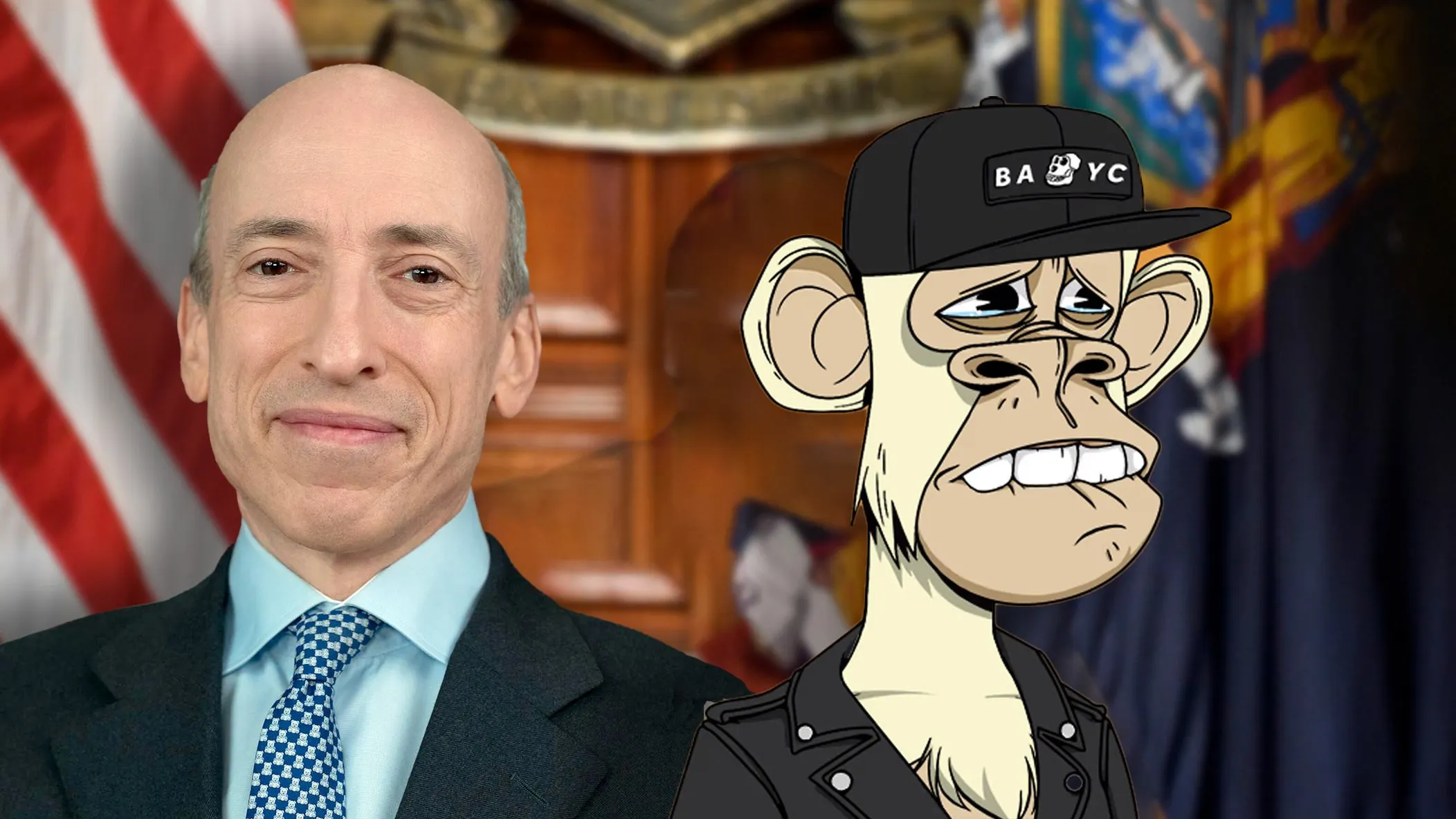On Monday, the United States Securities and Exchange Commission (SEC) announced its first-ever enforcement action over the sale of NFTs, fining a Los Angeles-based media company $6 million for selling illegally unregistered securities. But does the action signal an impending crackdown against a broader array of NFT projects?
The facts of the case weren’t exactly ambiguous: The fined company, Impact Theory, told potential NFT buyers that “if you’re paying 1.5 [ETH], you’re going to get some massive amount more than that” once the company became “the next Disney.”
However, Monday’s news does leave much in question about the regulatory fate of the multi-billion-dollar NFT industry, which until this week had avoided the ire of the SEC’s crypto-allergic chairman, Gary Gensler.
Following a pattern now typical for its crypto-related cases, the SEC’s announcement Monday was quickly followed by a vocal rebuke from the five-seat Commission’s Republican minority. SEC Commissioners Hester Peirce and Mark Uyeda lambasted their chairman for attempting to assert dominion over the NFT market, which largely consists of digital collectibles and artwork.
“We do not routinely bring enforcement actions against people that sell watches, paintings, or collectibles along with vague promises to build the brand and thus increase the resale value of those tangible items,” Pierre and Uyeda wrote in their dissent.
The SEC has never regulated the art market or the trade of luxury goods. But might the Commission’s current antipathy for crypto-related products coax it to start regulating the sale of NFT-backed art projects, digital collectibles, and membership passes? Was Monday’s action the takedown of a run-of-the-mill securities scheme that only happened to feature NFTs, or a calculated signal that the SEC is coming for the entire NFT market?
Jeremy S. Goldman, a litigator who specializes in the regulation of NFTs and blockchain technology, did not find the SEC’s enforcement action this week to cross any sort of Rubicon in and of itself. Such a line would be crossed in the attorney’s opinion, however, if the SEC took the opportunity to start going after more mainstream NFT projects.
“A lot of these projects are just selling art. They’re selling collectibles,” Goldman told Decrypt. “If they bring an action against those projects, then I’ll be surprised—if they decide to open up that Pandora's box of issues.”
Such issues would include wading into murkier legal (and philosophical) questions, namely how to measure the expectation of profit against more abstract factors including the enjoyment of art and the pleasure derived from collecting rare items. Further, if the SEC goes after NFT art and collectibles, won’t it therefore have to then regulate every art fair and Beanie Babies convention in the country?
“The SEC does not have the appetite for engaging with the art market,” Brian Frye, a law professor at the University of Kentucky who specializes in art and NFTs, told Decrypt. “As a consequence, I don't see any likelihood of the SEC regulating the NFT art market.”
But to beg another philosophical question: What is art? Some of the top brands in the NFT industry do not hail from individual artists, but from multi-billion-dollar companies that sell 10,000-unit profile picture (PFP) projects renowned, principally, for their extraordinary resale value.
“A project like Bored Ape Yacht Club," Frye said, "is selling, in effect, 10,000 shares for a fixed price, and then letting them float and taking a commission on transactions. That looks an awful lot like a company doing an IPO and then acting as a broker afterward.”
Whether the SEC decides it can go after major PFP projects without appearing to encroach on the art world will be a delicate calculation; several such NFTs have already featured in some of the world’s most prominent art museums and auction houses.
But the agency has also proven, at least in the crypto world, to possess a voracious regulatory appetite bent on controlling entire markets, more so than merely punishing sporadic bad apples.
One potential indication of the SEC’s future plans for the NFT market came buried in the cease-and-desist order that the agency released Monday regarding Impact Theory. To bolster its claim that the media company’s NFTs were in fact unregistered securities, the SEC highlighted the fact that Impact Theory collected a 10% creator royalty on every resale of its “Founder’s Key” NFTs.
“Because the issuer is receiving some sort of value every time one of these NFTs trades, that could be a suggestion that they're encouraging liquidity,” Drew Hinkes, an attorney and adjunct professor at NYU specializing in digital assets, told Decrypt.
Thus, the SEC could have just established a critical relationship between creator royalties and securitized assets. If such an association is currently informing the SEC’s decision making, then the vast majority of the mainstream NFT market would, in the agency’s eyes, fall under its regulatory purview. Most popular NFT collections either currently levy creator fees or are finding ways to, given recent industry-wide developments.
In the last few months, creator royalties—charges typically ranging from 2.5% to 10% that are tacked on to secondary sales of NFTs and paid out to creators—have become increasingly threatened, as some NFT marketplaces have pulled away from guaranteeing them.
NFT industry leaders have condemned such moves, arguing that creator royalties are fundamental to the essence of NFTs and to the purpose of the industry. Several prominent companies, including Yuga Labs—which owns the Bored Ape Yacht Club and CryptoPunks—have signaled their intention to only sell NFTs on platforms that ensure creator fees.
Those companies may eventually win the ongoing battle with trading platforms over creator royalties. But that victory could end up being a pyrrhic one that spells greater risk in the looming war over industry-wide regulation.

